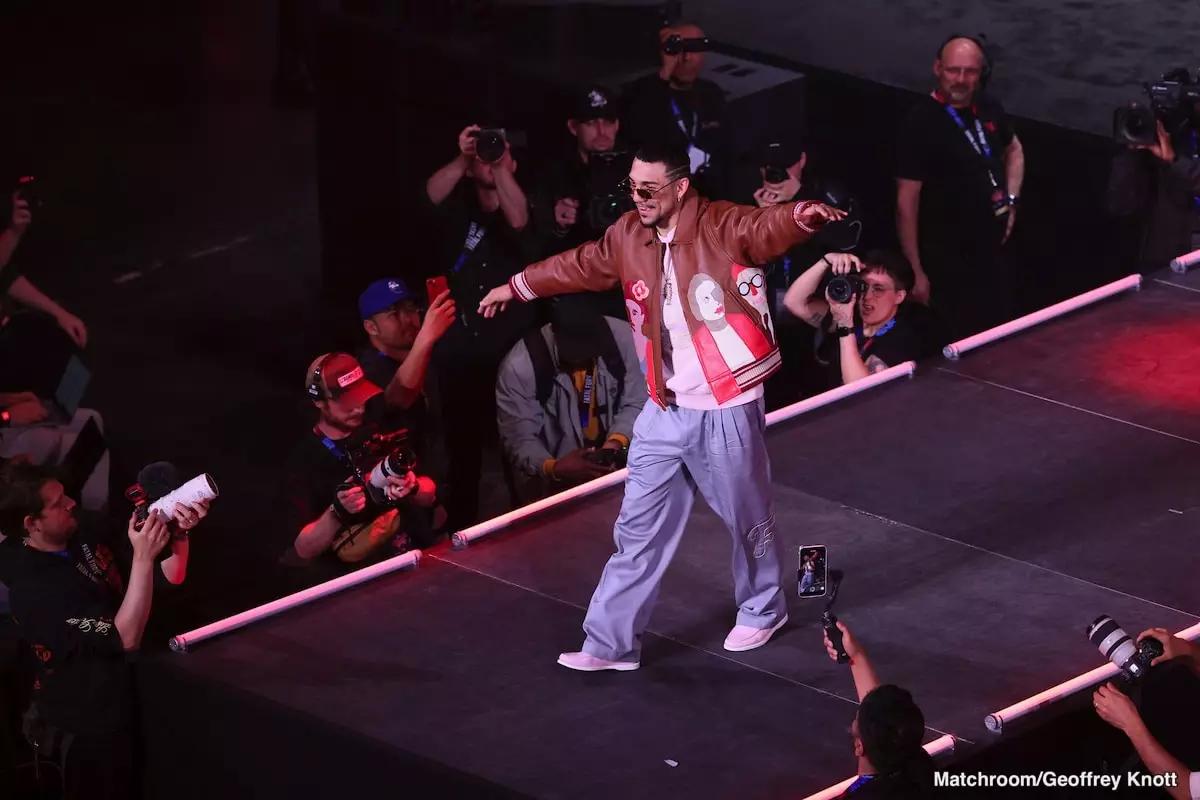In the world of boxing, the anticipation of a blockbuster fight can often feel like a double-edged sword. Devin Haney’s eagerness to square off against Teofimo Lopez for their highly-touted match on August 16th in Riyadh was palpable. The former two-division world champion, boasting an impressive record of 32-0 with 15 knockouts, was undoubtedly eyeing this bout as a significant step forward in his career. However, the abrupt cancellation of these negotiations has left fans and analysts questioning the integrity and competitive spirit of Lopez, especially given Haney’s characterization of his once-prominent rival as a “duck.”
The crux of the disagreement appears to lay not in Haney’s willingness to fight, but rather in Lopez’s part to confirm the match. Haney had been in limbo, ostensibly left waiting for Lopez to finalize the contractual details. This suggested either a lack of commitment or, worse yet, an unwillingness to face the rising dangers that Haney presents. For Lopez, avoiding this fight seems to reflect a calculated decision—one that prioritizes his career over the spirit of competition.
The Stakes of Adversity
For boxing fans, a critical aspect of the sport is the courage to confront opponents, especially in matches where both parties seek to elevate their status. However, Lopez’s reluctance could be indicative of a deep-seated fear of losing to Haney, particularly after a disappointing performance against Jose Ramirez. The fight against Haney arguably poses a higher risk with potentially dire consequences for his career trajectory. Lopez is aware that a loss to Haney would resonate far deeper than a defeat to Ennis, another competitor that Lopez is eyeing for a future payday.
In the often cutthroat world of boxing, perception can dictate financial opportunities. The bottom line for Lopez is simple: losing to Haney might diminish his marketability and push him further away from lucrative matchups. In this sense, his withdrawal from the fight could be interpreted less as a refusal to compete and more as a strategic maneuver to protect his brand amid a period of vulnerability.
Boxing’s Hotbed of Promotion and Negotiation
The collapse of these negotiations sheds light not just on individual fighters but on the culture of boxing itself, a sport rife with distortion and public posturing. While Haney has made it clear he still yearns for high-profile fights, one has to wonder what principles govern these decisions. Are athletes entitled to follow their financial instincts, or should their loyalty to the sport inspire them to accept challenges head-on?
Moreover, it raises the issue of how boxer reputations are constructed in the media. Haney’s outspoken disappointment illustrates how personal narratives can emerge in the aftermath of such disagreements. The trading of barbs between fighters often becomes about marketability as much as ring skills. Haney’s bold words may reinforce his image as a brave fighter, while Lopez’s absence from the matchup could taint his legacy.
Ultimately, while fans await definitive updates regarding future potential fights, the boxing community must critically analyze the implications of such negotiations. The risks involved in declining bouts extend beyond immediate earnings and can echo down the corridors of a fighter’s career, ultimately defining their narrative in the sport.

